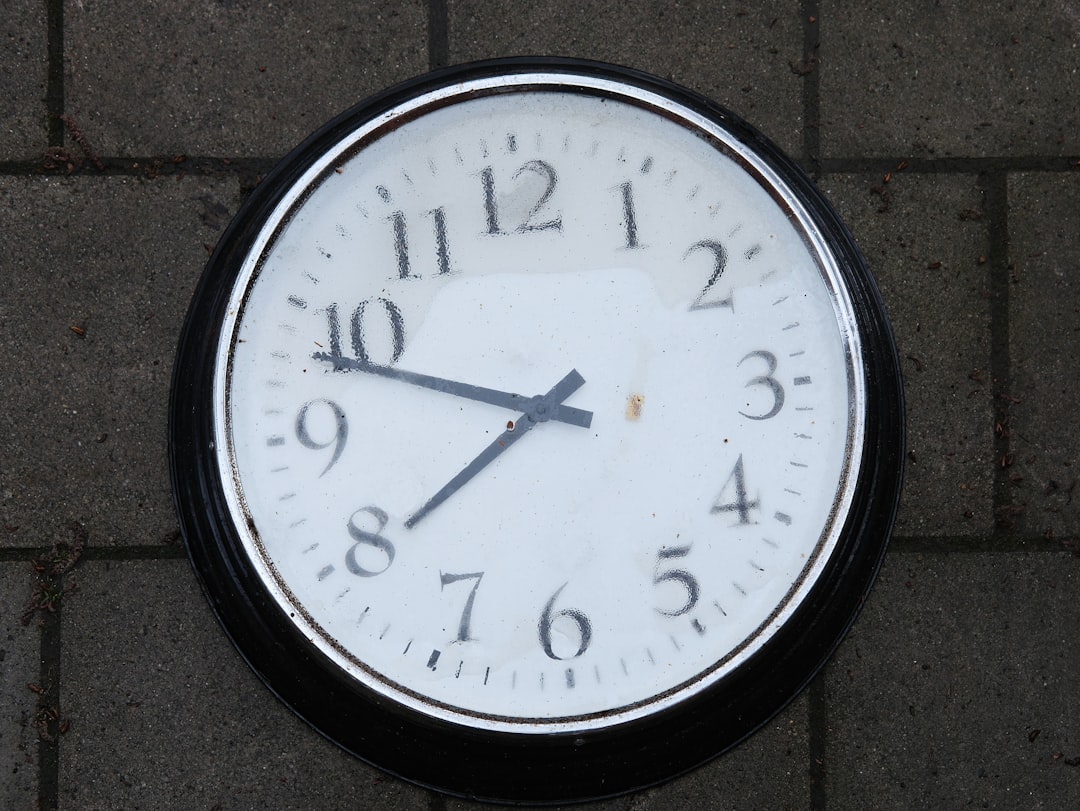
Do you ever feel like your day just slips away from you, leaving you wondering where all the time went? I’ve been there. For years, I struggled to get a handle on my time, constantly feeling overwhelmed and unproductive.
It’s easy to feel stuck in a loop of wishing you had more hours in the day or a magic formula to get everything done. Believe me, I know that feeling intimately. I used to spend countless hours on things that drained me, like gaming and unhealthy eating habits. My days felt chaotic, with no real structure or purpose. But slowly, over time, I learned that it’s not about having more time. It’s about how you distribute the time you have. It's about being intentional with each moment.
I’ve found some powerful ways to reshape my days and reclaim my schedule. These aren’t complex theories; they’re practical steps that helped me transform my own life, allowing me to build a healthier routine, find focus in my work, and even lose over 110 pounds. I want to share 15 methods for time distribution that can help you too. You do not need to try them all at once. Pick one or two, give them a real try, and see what works for you.
Understand Your Current Time Use
Before you can change how you distribute your time, you need to know where it is going right now.
- Track Your Time Honestly: For a few days, write down everything you do and how long it takes. This means everything—from making coffee to scrolling social media to deep work. You might be surprised where your time actually goes. When I first did this, I saw just how much time I was pouring into mindless activities like endless video game sessions. This awareness was the first step to making real changes.
Plan with Purpose
Once you know where your time goes, you can start being more deliberate about where you want it to go.
- Plan Your Day the Night Before: Before you go to bed, quickly list your top three priorities for the next day. This clears your mind and sets a clear intention for the morning. I started doing this, and it made my mornings so much calmer and more focused. I felt less rushed and more in control.
- Use Time Blocking: Assign specific blocks of time to specific tasks or types of work. For example, "9 AM – 11 AM: Deep Work on Project X." Treat these blocks like appointments you cannot miss. This is especially helpful for me, allowing for focused bursts of work (2-4 hours) where I can truly dive deep without interruption.
- Batch Similar Tasks: Group together similar activities and do them all at once. For example, answer all emails during one specific time slot, or run all your errands back-to-back. This reduces context switching, which can be a huge time drain.
- Prioritize Ruthlessly: Not everything is equally important. Use a simple system to decide what needs doing first. The "Eisenhower Matrix" helps categorize tasks by urgency and importance: Do, Decide, Delegate (if possible), or Delete. Focus on the "Do" tasks first. This was key in helping me overcome laziness because it forced me to confront what truly mattered.
Work Smarter, Not Harder
These methods help you get more out of the time you spend working.
- Use the Pomodoro Technique: Work for 25 minutes focused on one task, then take a 5-minute break. After four "Pomodoros," take a longer break (15-30 minutes). This helps maintain focus and prevents burnout. It’s perfect for those "short bursts of deep work" I mentioned.
- Do the Hardest Thing First ("Eat the Frog"): Tackle your most challenging or dreaded task early in the day when your energy and willpower are highest. Once it’s done, the rest of your day feels lighter and more manageable.
- Implement the Two-Minute Rule: If a task takes less than two minutes to complete, do it immediately. Don't postpone it. This prevents small tasks from piling up and becoming overwhelming. Think quick emails, putting away dishes, or making a short phone call.
- Set Clear Boundaries: Learn to say "no" to requests that don't align with your priorities or values. Protecting your time is vital for effective distribution. This was a tough lesson for me, especially when I was trying to break free from old habits. Saying "no" to an invitation for an activity that I knew would derail my progress was powerful.
Integrate Rest and Reflection
Time distribution isn't just about work; it’s about creating a balanced life.
- Schedule Regular Breaks: Your brain needs downtime to recharge. Short, intentional breaks throughout your day actually improve productivity and focus. Step away from your screen, stretch, or simply close your eyes for a few minutes.
- Designate "Unplugged" Time: Set aside specific times when you turn off notifications and avoid screens. This allows you to be fully present with loved ones, engage in hobbies, or simply rest without digital distractions.
- Build a Consistent Routine: A predictable structure to your day helps you move through tasks efficiently. My own productive routine, built on early mornings and dedicated work blocks, has been a game-changer. It’s like creating a reliable framework for your entire life, making good habits easier to stick to.
- Celebrate Small Wins: Acknowledge your progress, no matter how small. This builds momentum and motivation. When I was losing weight, celebrating a week of consistent healthy eating or an extra workout session kept me going, even when the overall goal felt distant. These small celebrations reinforced my good time distribution choices.
- Practice Daily Gratitude: Taking a few minutes each day to reflect on what you are grateful for shifts your perspective and reminds you of what truly matters. This isn't a direct time management technique, but it profoundly impacts how you value and distribute your time, pushing you towards purposeful living. For me, strengthening my Christian Orthodox faith and finding purpose through a closer relationship with God has grounded my entire approach to life. It helps me prioritize what is eternal over what is fleeting, making my time distribution choices more meaningful and less about worldly pressures.
- Review and Adjust Weekly: At the end of each week, take 15-30 minutes to review how your time distribution went. What worked? What didn't? What do you want to change next week? This is a crucial step for continuous improvement. It’s about being an active participant in designing your life, not just a passive observer.
Distributing your time effectively is a journey, not a destination. There will be days when you feel like you're nailing it, and days when it all feels like a mess. That’s okay. The goal isn't perfection. It’s about making small, consistent steps towards a life where you feel more in control, more purposeful, and more present.
Which of these methods resonates with you most right now? What's one small change you can make today to start distributing your time with more intention? Take that first step. You've got this.





